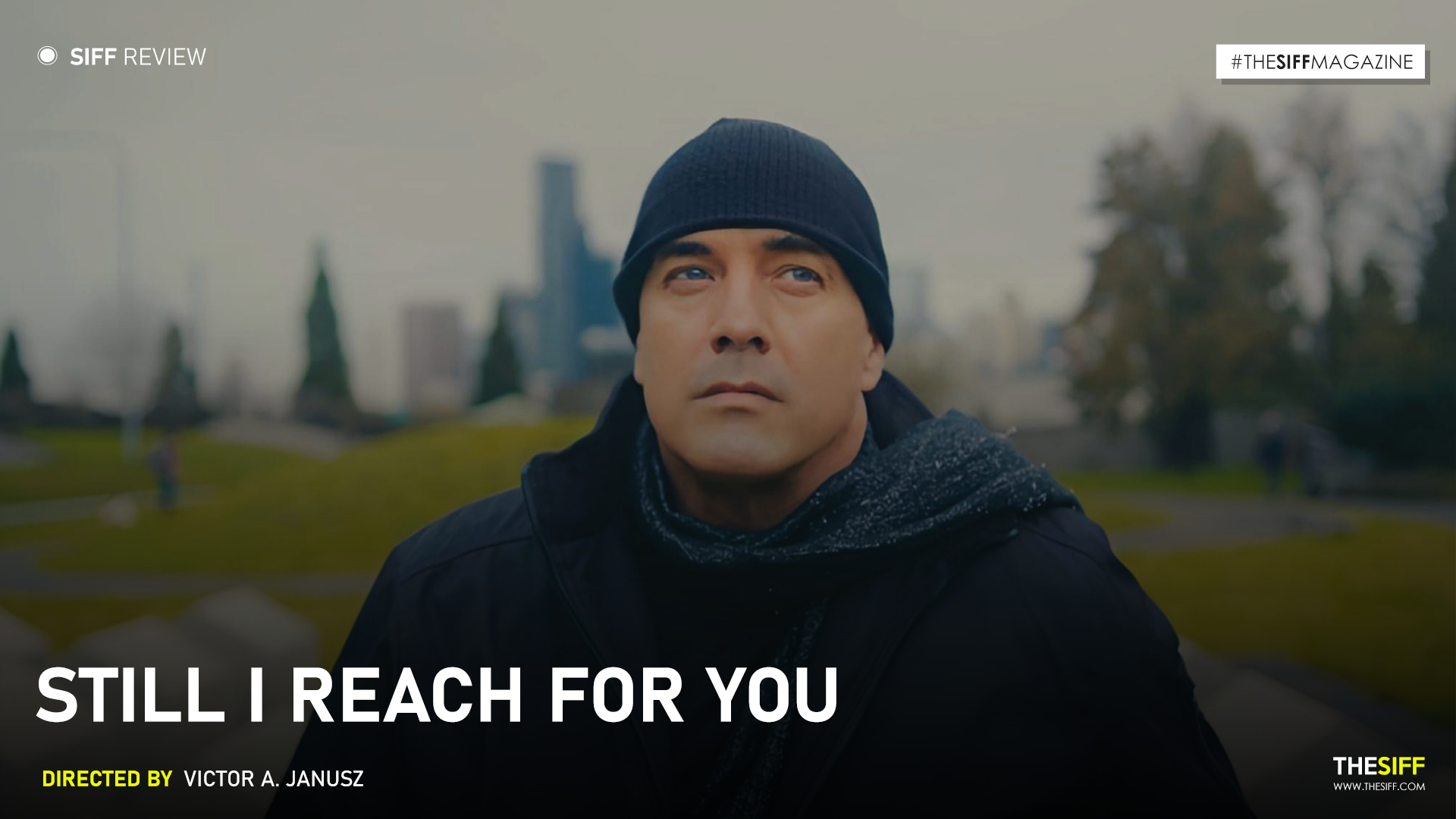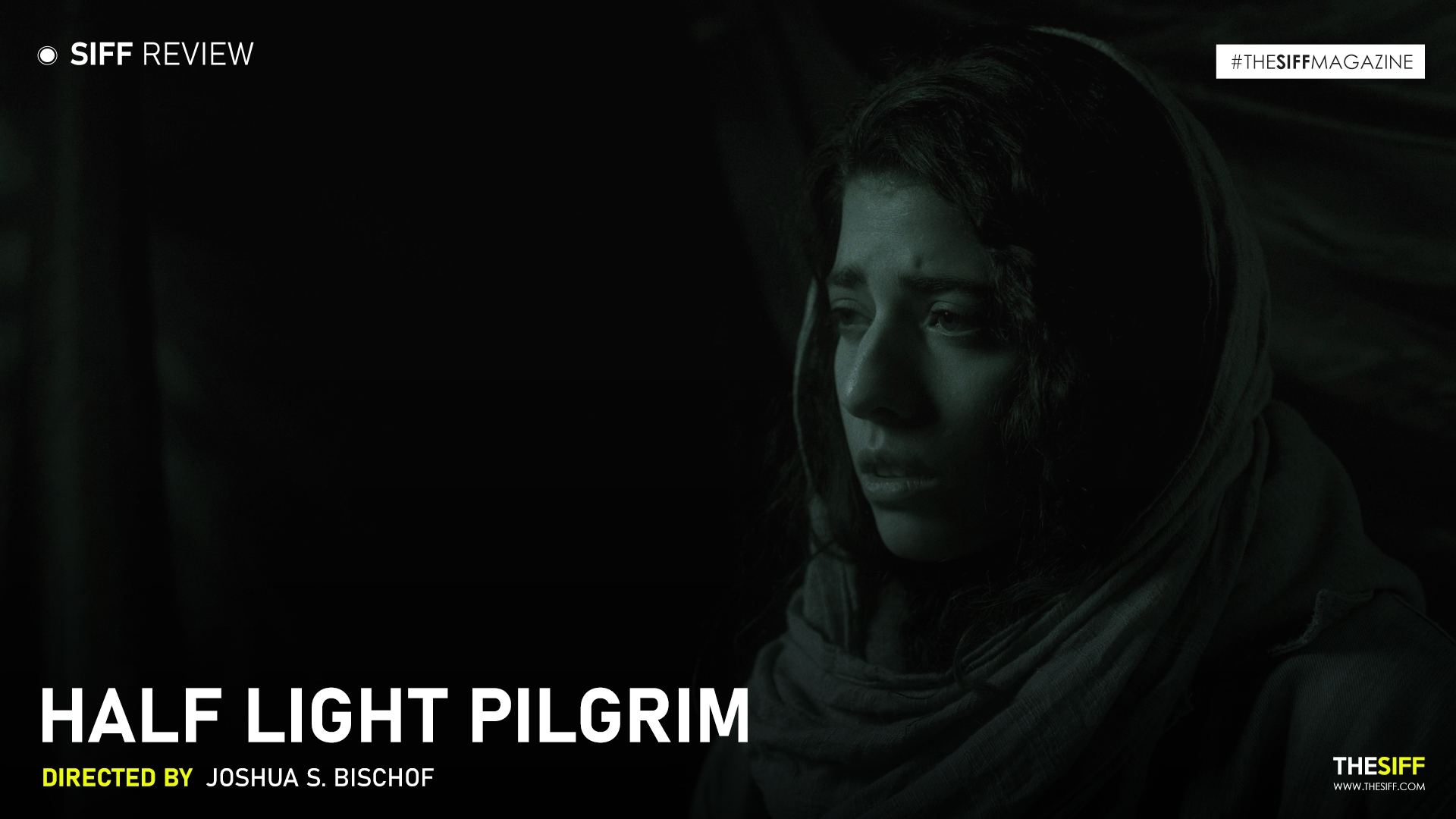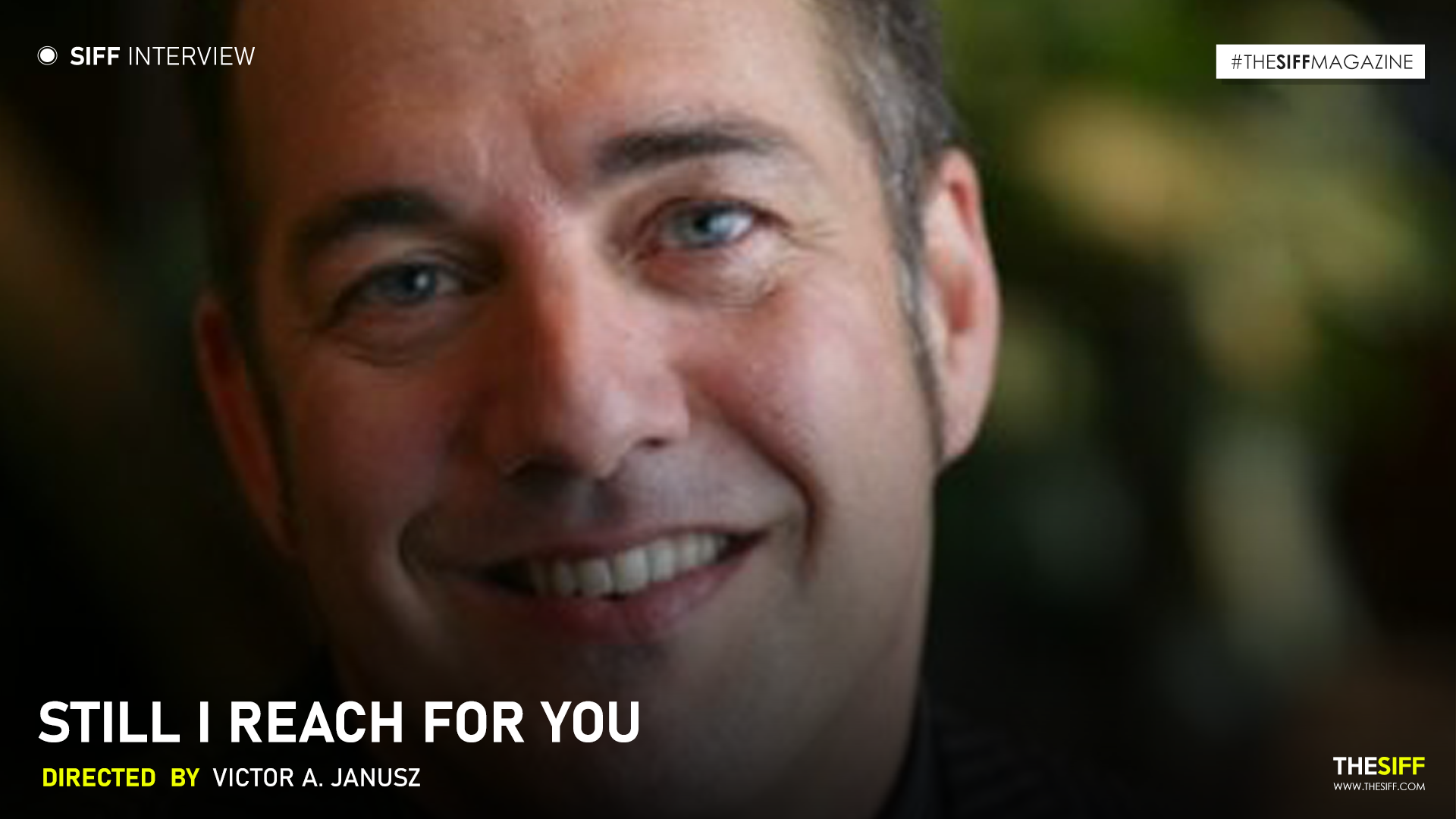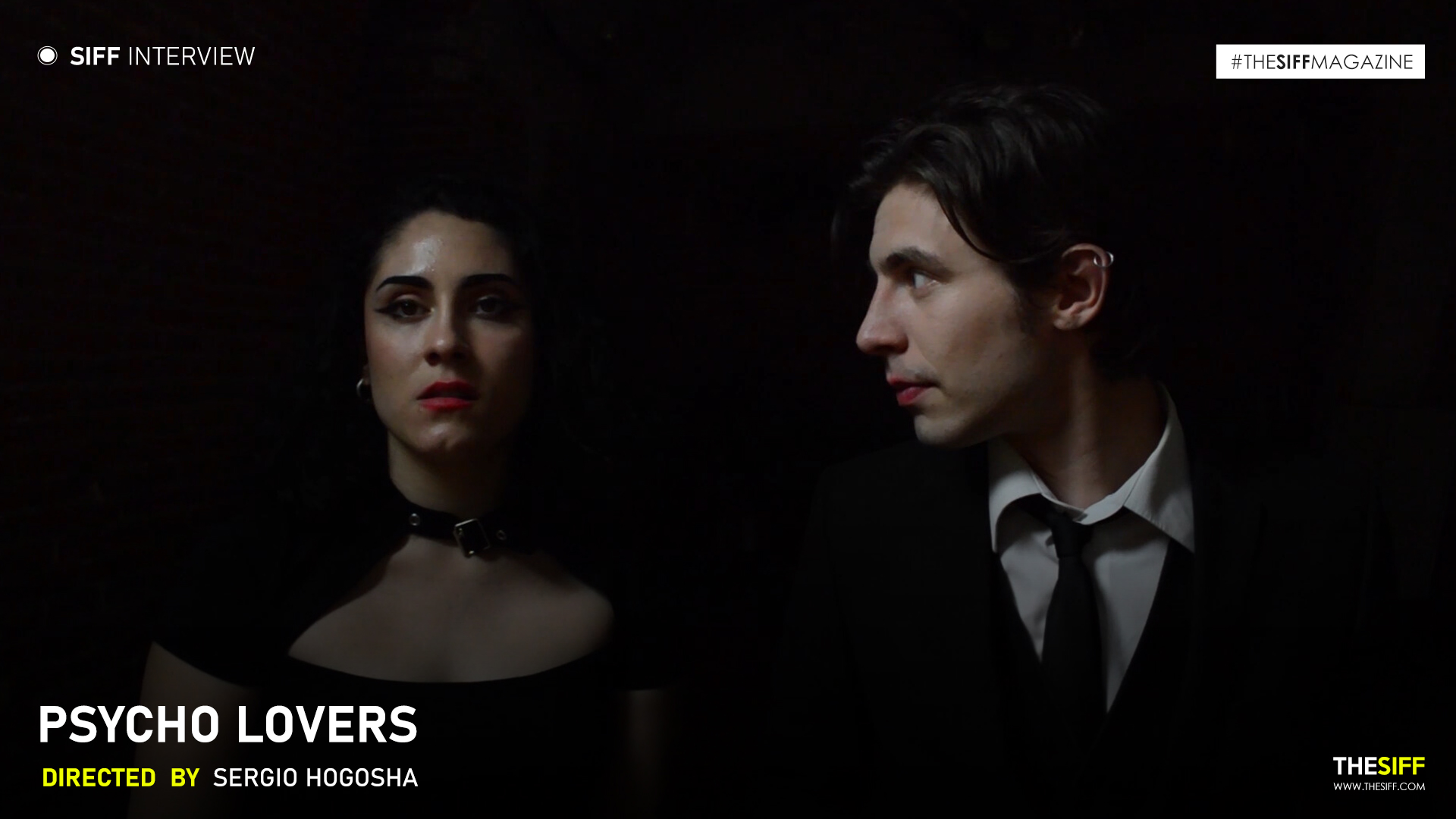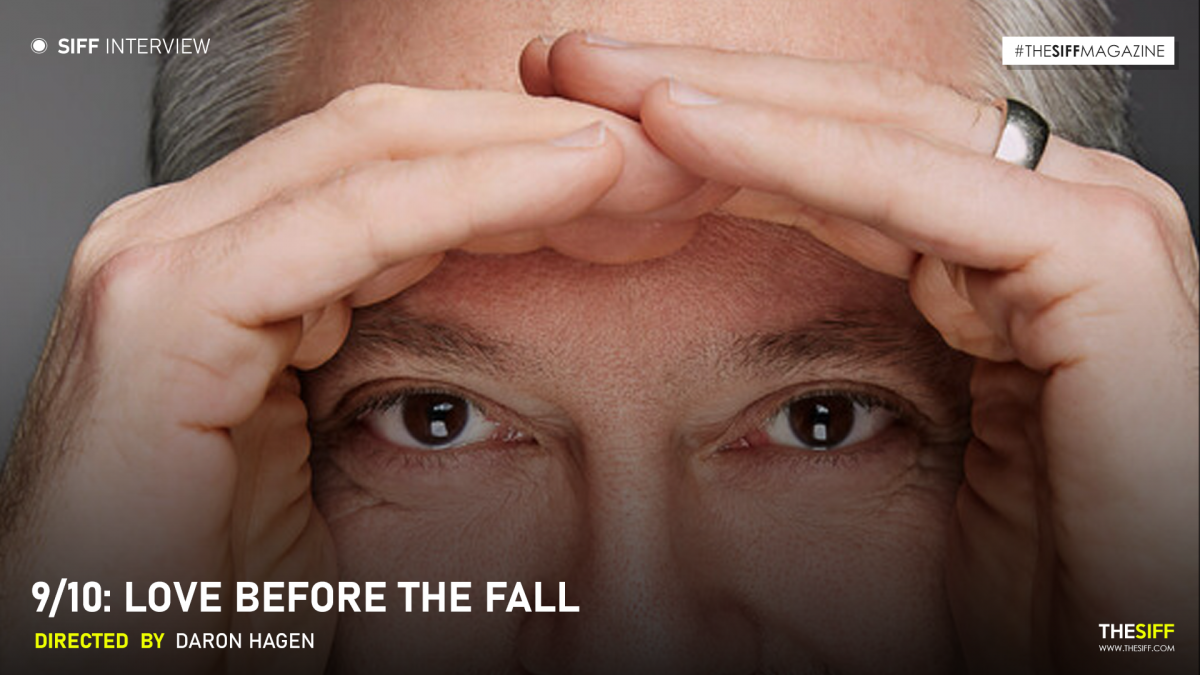
Movie Name : 9/10 Love Before The Fall
Director : Daron Hagen
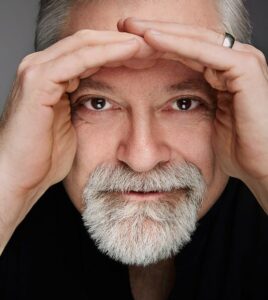
Hello Daron! Welcome to SIFF
1.9/10 Love Before the Fall is a bittersweet movie. What made you create it?
The night before the World Trade Center in New York City is destroyed by terrorists and thereby imbued with a unique and sacred “spirit of place,” four ordinary people gather in an ordinary Italian bistro called “Passaggio” that, through their love, is transformed into a place of exceptional significance – a spiritual liminal zone between life and death populated by both living and mythological characters. Through the dramaturgical sleight of hand of magical realism, the four come to realize, at their lives’ moment of greatest happiness (a dual successful wedding proposal), that the strolling violinist at the restaurant is in fact Charon, the character who ferries souls across the River Styx. They intuit that they are either already dead, or are experiencing cherophobia. In fact, we know that they will all die in the Twin Towers the next day and observe as they come to terms with that actuality: accordingly, the film tracks their ambivalence, ruefulness, the tragicomedy of existence, the simultaneously banal and magical melancholia of the bardo, the conflicted and reflective nature of the examined existence.
2.A perfect autumn night on 9/10 wasn’t actually perfect – but it was just a lull before the storm. Do you really believe such things happen? From your end do you believe that there is no perfection? Life is full of highs and lows and it’s a topsy-turvy world.
We seek perfection, which will always elude us. I quote Dante: “Remember tonight, for it is the start of everything” to underline the fact that, in our characters’ world, perfection may be only the instant of greatest potential for change. The four characters find perfection for an instant as the men sing, “Will you marry me?” and the women sing, “Yes, I will.” Of course, the hard work of marriage is yet to come, and, based on what we’ve learned about these people from their “I am / I want” arias, it seems pretty clear that married life for them is going to be more Cheever than Bũnel. I do believe that each of them, through their interactions with Charon, finds their honor (in the Proverbs 29:23 sense) before heading out into the night. This film is decidedly not about American exceptionalism; rather, it is about how fundamentally alike people everywhere are.
I wrote an opera called Amelia a few years back about a woman whose father was shot down in Vietnam that ends with her finding a sense of purpose in holding her newborn, singing “anything is possible.” The wonder of the moment is that, for her infant, it is actually true. The rest is life. I begin 9/10 with the same first words with which I began that earlier opera: “The sky today was navy blue” in order to signal that I am telling a continuation of the same story. As Orson Welles said, “If you want a happy ending, that depends of course, on where you stop the story.” I stopped the story here because we all know what happened next.
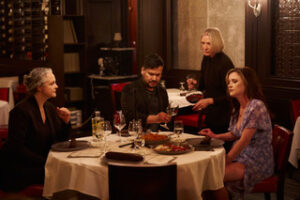
3.There is an element of sadness and tragedy even while we see the happy faces on screen. What’s your take on this?
When I was a kid, I memorized my favorite poem, “The Waking,” and recited it to my mom. “It’s about death!” I proclaimed. “No, honey, it’s about rebirth,” she explained patiently. To truly live, Roethke is saying, is to have a mature sense of our own mortality, to realize that life is short, and to acquire the wisdom to live accordingly. As we get to know these characters, we become aware of their limitations, their humanity. That hurts us, the way that a parent observing the unalloyed joy of their child at play does, because we know what’s in store for them.
4.9/11 was brutal no doubt. But 9/10 digs the wounds deep. What made you write and direct this story?
I was composing in my flat on the Upper West Side when the first plane hit the World Trade Center. Soon, fighter jets were screaming, low, up the Hudson and refrigerator trucks were heading south on Broadway to accept the victims. I walked south to Washington Square Park and spent the day making sandwiches for first responders.
As a New Yorker, I knew that I, too, would one day craft a “9/11” piece. This is it. I do believe that the overwhelming majority of people are good, and want to do good. I wrote and directed 9/10 because–along with all the other takeaways from the tragedy with which we’ve all had to live–it has always struck me that the true evil of the act was in its attacking of the innocent, its robbing them of their humble chance to make the world a better place than they found it, the destruction of their potential to do good.
5.Death is inevitable. Do you want this message to reach out to the world? Something makes the viewers feel bad at the end for these characters. What’s your take on this?
Like my mother admonishing me to understand that Roethke was writing about rebirth, I would answer your question by saying that 9/10 savors life, and examines how death figures in to life–not the other way around. I do not find death interesting. But I am fascinated by how life insists on abiding, despite all. The sorrow that we feel for the characters is not inspired by the knowledge that they’re going to die; rather, we mourn the lives that they – and, by extension, the many lives of folks swept up in the event – could (and should) have enjoyed.

6.Charon, from Greek mythology, makes an appearance at the end. What made you take inspiration from Greek mythology to beautifully put this storyline into the plot?
Charon begins the film, and is identified from the start as the violinist who insinuates himself in the action throughout. Eury, the singer on the radio heard as we first watch him take his violin from the case, and thereafter throughout, is singing about “the boatman,” or “ferryman,” or “barcaiolo.” She is, of course, Eurydice to the bartender’s Orfeo. Charon has separated them because Orpheus broke his promise not to look back at Eurydice as he led her out of Hades. She is condemned to be heard only through the radio; he’s doomed to tend bar at the Passaggio, in order to be close to his wife in the only way possible. They’re an apt metaphor for survivors of personal disaster everywhere and anchor the story in the history of opera. These resonances serve to contextualize the otherwise Audenesque “Age of Anxiety” of it all. Ironically, they make their lot feel more contemporary–the mythologization of the quotidian.
7.All the four friends paid Charon for their final departure from this world and the look on Charon’s face made the watch a chilling experience. So, have you ever considered venturing into horror movies or thrillers?
Maybe 9/10 is a thriller or a sci-fi fable, or an episode of The Twilight Zone! Charon’s a fascinating character. He and Lulu, the hostess, have likely seen it all. I imagine that they have served and entertained everyone from Leonides, fresh from the battlefield at Thermopylæ, to Kennedy after a parade in Dallas; from noblemen on their way to Agincourt to Astor enjoying a Punch Romaine aboard the Titanic. Charon exists out of time; he is an eternal student of the human condition, a spiritual brother of Wenders’ angels in Wings of Desire, Damiel and Cassiel. He is wise, but compassionate. He gets his work done.
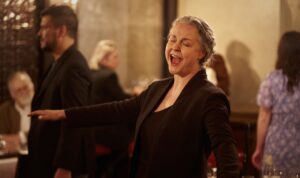
8.9/11 has definitely left a mark on the United States and this movie too will surely strike a chord in everyone’s heart. However, when did this concept strike your mind?
I first wrote the treatment for 9/10 in 2011 as the basis of a successful application for a John Simon Guggenheim Memorial Foundation Fellowship. The key phrase in it was: “The intertwined strands of the [four] lives that find their knotting point the night before and a few blocks away from Ground Zero provide an opportunity to explore themes of redemption, loss, forgiveness, fate, and personal reinvention particular to (but certainly not exclusive to) a handful of New Yorkers at the beginning of the 21st century. My aim is for the work to provide for audiences and performers an opportunity to recollect themselves, reconnect with loved ones, and to heal.”
9.Finally, did you enjoy working with SIFF?
SIFF was unfailingly supportive, professional, and respectful of the creative process. I am tremendously grateful to SIFF for the recognition given to our film.


